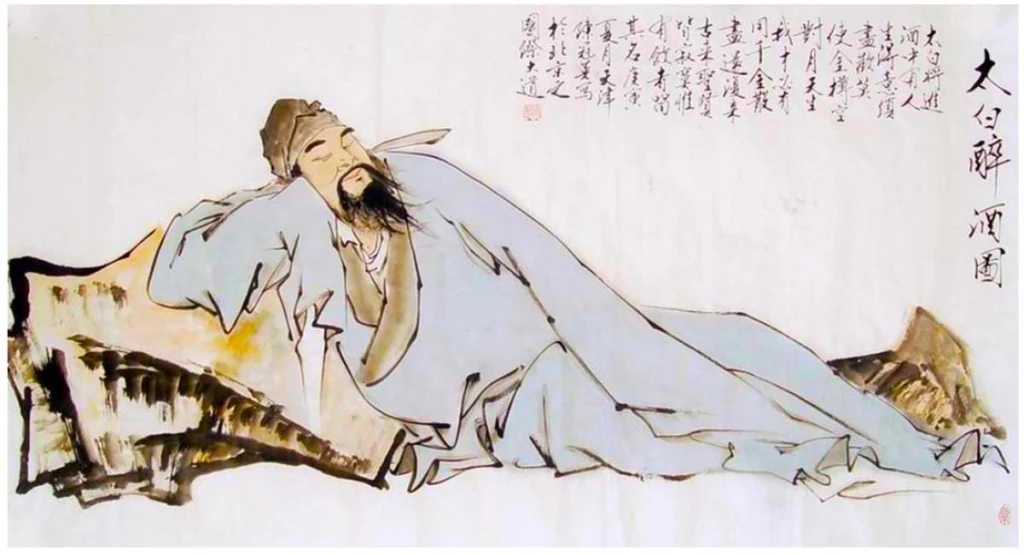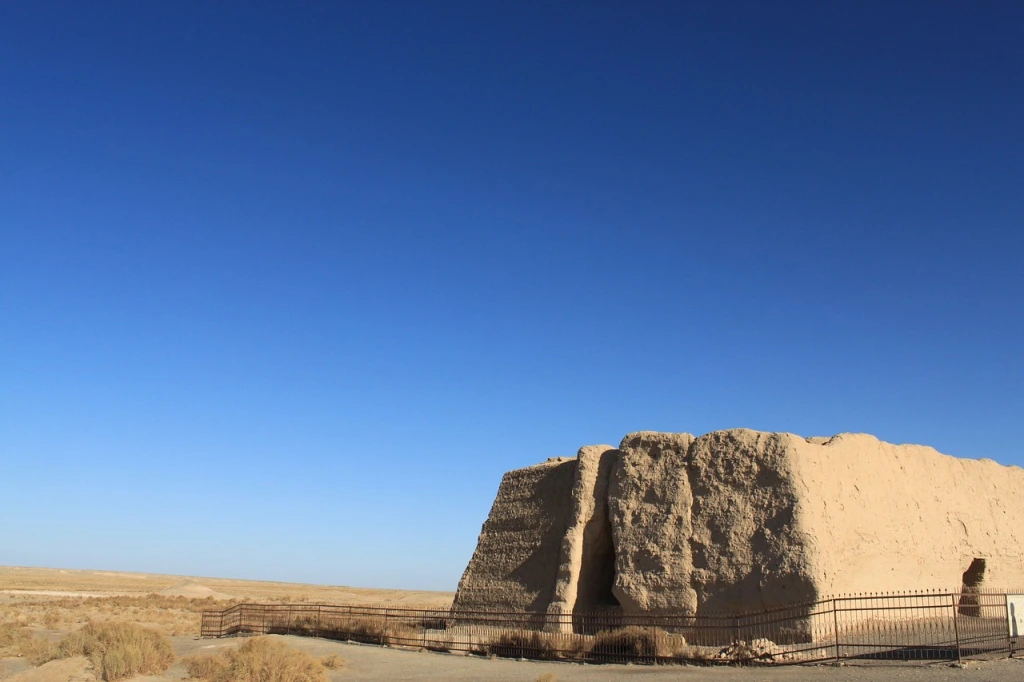Chang’an is lit by a crescent moon and
From ten thousand homes comes the sound of cloth-pounding
While an autumn wind blows endlessly,
For those who guard the Gate at Yumenguan.
Who knows when peace will be made with the northern Hu?
So good men may return from long marches.
長安一片
萬戶搗衣聲
秋風吹不盡
總是玉關情
何日平胡虜
良人罷遠征
Cháng’ān yīpiàn yuè
wàn hù dǎo yī shēng
qiū fēngchuī bù jìn
zǒng shì yù guān qíng
hérìpíng hú lǔ
liáng rén bà yuǎnzhēng

Li Bai’s Ballads of Four Seasons
In Spring, the lovely Lo Foh picks mulberry leaves for her silk worms while she disarms the advances of a Prince. In Summer, Xi Shi, China’s Beauty gathers lotus blossoms in May. In Autumn, a sliver of a moon hangs high over Chang’an while soldiers guard Yumenguan Pass. In Winter, a loving wife can hardly hold her needle and thread while she stitches a warm cloak for her warrior husband.
These are the Four Seasons and the Four Ballads of Li Bai.
In this poem, Autumn, Li Bai returns to Chinese history, hearkening back to the reign of Emperor Wu, seventh emperor of the Han dynasty who ruled from 131- 87, a record of 54 years, not surpassed for almost 1,800 years. Emperor Wu led Han China through its greatest expansion. At its height, extending the Empire’s borders north and west to Mongolia and modern Kyrgyzstan, Korea in the east, and Vietnam in the south.
In the North, Emperor Wu faced off against the northern “barbarians”, but this term did not exist in China. Instead, Li Bai refers to he Hu people 胡虜, Hu lu. This ancient people were also known as the Xiongnu. Wu used varying policies of appeasement, marriage, and ultimately war to fight them off.
Li Bai wrote this series of Ballads during the insurrection of General An Lushan, whose rebellion against the Tang dynasty began in 755 with disastrous consequences.
Yumenguan
Every Chinese reader of Li Bai’s poetry, then and now, was and is familiar with Yumenguan, 玉門關, the Jade Gate. This remote post marked the western extent of Chinese control. The name derives from the precious jade carried through its gate. 遠征, yuǎnzhēng, I translate as a long march, also an expedition, campaign would also fit.

Crescent Moon
Li Bai hangs a crescent moon, 一片月, Yīpiàn yuè, over Chang’an, the capital of the Tang dynasty. One could have used the literal translation, a piece, or the poetically assonant “sliver” with shines, but I like the image of a crescent moon over Chang’an. It conveys the dire image that Chang’an and the Tang dynasty were hanging on by a thread during An Lushan’s rebellion.











